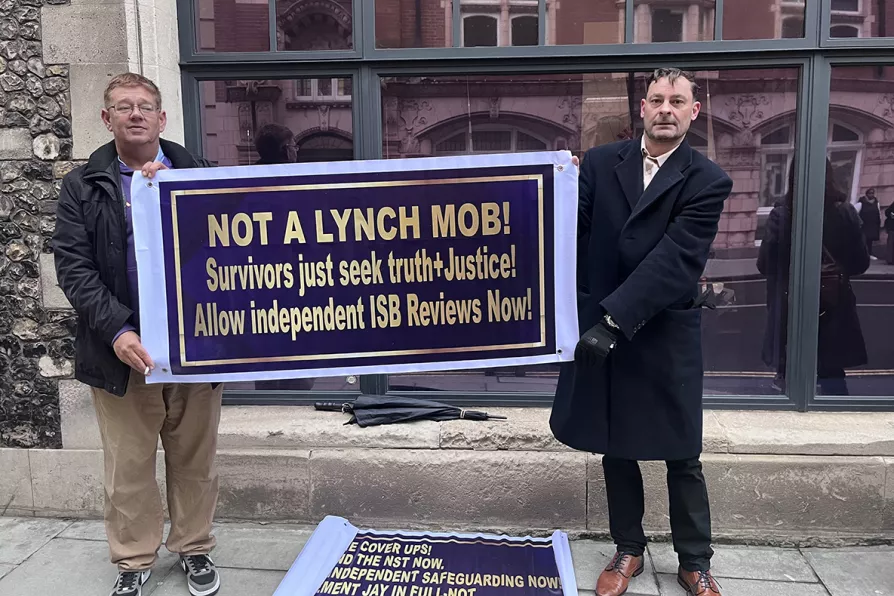C of E has ‘totally lost’ public trust in its safeguarding, survivors say

 Abuse survivor Craig Freedman (right) outside Church House in London where the Church of England's General Synod, also known as its parliament, is taking place, asking for members to vote for the more independent of two proposed models for safeguarding, February 11, 2025
Abuse survivor Craig Freedman (right) outside Church House in London where the Church of England's General Synod, also known as its parliament, is taking place, asking for members to vote for the more independent of two proposed models for safeguarding, February 11, 2025
THE Church of England has “totally lost” the public’s trust, child abuse survivors said today after bishops voted against moving to fully independent safeguarding.
A motion that would have seen all church-employed safeguarding officers transferred to a new independent body was rejected by the General Synod on Tuesday.
Members of the church’s parliament instead voted overwhelmingly for diocesan and cathedral officers to remain with their current church employers, while most national staff move to a new outside body.
Similar stories

Campaigners vow to keep up fight against Assisted Dying Bill as it clears House of Commons













